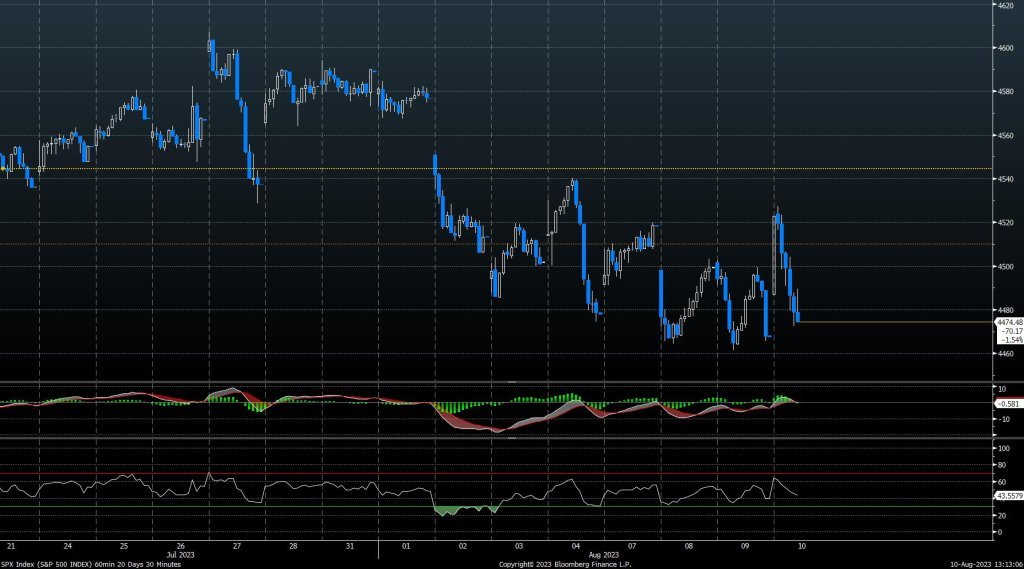-
Research
-
Latest Research
-
Latest VideosFSI Pro FSI Macro FSI Crypto
- Tom Lee, CFA AC
-
First WordFSI Pro FSI Macro
-
Intraday WordFSI Pro FSI Macro
-
Macro Minute VideoFSI Pro FSI Macro
-
OutlooksFSI Pro FSI Macro
- Mark L. Newton, CMT AC
-
Daily Technical StrategyFSI Pro FSI Macro
-
Live Technical Stock AnalysisFSI Pro FSI Macro
-
OutlooksFSI Pro FSI Macro
- L . Thomas Block
-
US PolicyFSI Pro FSI Macro
- Market Intelligence
-
Your Weekly RoadmapFSI Pro FSI Macro FSI Weekly
-
First to MarketFSI Pro FSI Macro
-
Signal From Noise
-
Earnings DailyFSI Pro FSI Macro FSI Weekly
-
Fed WatchFSI Pro FSI Macro
- Crypto Research
-
StrategyFSI Pro FSI Crypto
-
CommentsFSI Pro FSI Crypto
-
Funding FridaysFSI Pro FSI Crypto
-
Liquid VenturesFSI Pro FSI Crypto
-
Deep ResearchFSI Pro FSI Crypto
-
-
Webinars & More
- Webinars
-
Latest WebinarsFSI Pro FSI Macro FSI Crypto
-
Market OutlookFSI Pro FSI Macro FSI Crypto
-
Granny ShotsFSI Pro FSI Macro FSI Crypto
-
Technical StrategyFSI Pro FSI Macro FSI Crypto
-
CryptoFSI Pro FSI Macro FSI Crypto
-
Special GuestFSI Pro FSI Macro FSI Crypto
- Media Appearances
-
Latest Appearances
-
Tom Lee, CFA AC
-
Mark L. Newton, CMT AC
-
Sean Farrell AC
-
L . Thomas Block
-
⚡FlashInsights
-
Stock Lists
-
Latest Stock Lists
- Super and Sleeper Grannies
-
Stock ListFSI Pro FSI Macro
-
CommentaryFSI Pro FSI Macro
-
HistoricalFSI Pro FSI Macro
- SMID Granny Shots
-
Stock ListFSI Pro FSI Macro
-
PerformanceFSI Pro FSI Macro
-
CommentaryFSI Pro FSI Macro
-
HistoricalFSI Pro FSI Macro
- Upticks
-
IntroFSI Pro FSI Macro
-
Stock ListFSI Pro FSI Macro
-
PerformanceFSI Pro FSI Macro
-
CommentaryFSI Pro FSI Macro
-
FAQFSI Pro FSI Macro
- Sector Allocation
-
IntroFSI Pro FSI Macro
-
Current OutlookFSI Pro FSI Macro
-
Prior OutlooksFSI Pro FSI Macro
-
PerformanceFSI Pro FSI Macro
-
SectorFSI Pro FSI Macro
-
ToolsFSI Pro FSI Macro
-
FAQFSI Pro FSI Macro
-
-
Crypto Picks
-
Latest Crypto Picks
- Crypto Core Strategy
-
IntroFSI Pro FSI Crypto
-
StrategyFSI Pro FSI Crypto
-
PerformanceFSI Pro FSI Crypto
-
ReportsFSI Pro FSI Crypto
-
Historical ChangesFSI Pro FSI Crypto
-
ToolsFSI Pro FSI Crypto
- Crypto Liquid Ventures
-
IntroFSI Pro FSI Crypto
-
StrategyFSI Pro FSI Crypto
-
PerformanceFSI Pro FSI Crypto
-
ReportsFSI Pro FSI Crypto
-
-
Tools
-
FSI Community
-
FSI Snapshot
-
Market Insights
-
FSI Academy
-
Book Recommedations
- Community Activities
-
Intro
-
Community Questions
-
Community Contests
-
Part 3
Why Do Investors Buy Stocks?
The rate of interest on ordinary loan amounts, and, if a creditor receives security, to only 2 and one-half percent. Therefore, even the wealthiest men are forced to buy stocks, and there are people who do not sell them when the prices have fallen in order to avoid a loss. But they do not sell at rising prices either, because they do not know a more secure investment for their capital. Moreover, in this kind of investment, their funds can be recovered in the quickest way.
Confusion of Confusions, Joseph de la Vega, 1688
This is the first known reference to a litany of reasons why wealthy investors buy stocks. They have been a great place to store wealth over the centuries, and even more so, they are often much more appealing than debt, even when measured against it in uniform ways. There are ways to compare the returns of different asset classes, and much of the asset management industry focuses on the proper proportion of stocks versus bonds. We are big believers in the equity asset class. We would remind investors that they can usually get all the same benefits of fixed-income investments using stocks that have high dividends.
The first book ever on stock markets was aptly titled Confusion of Confusions. This book shows that many of the problems we face in markets today are perennial and will likely always plague investors and risk-takers. Surprisingly, options, penny stocks, and market manipulation were all established features of markets in the 17th century.
The book is an illuminating look into how markets have stayed the same in many ways despite the furious pace of market change over the past century. It’s important to distinguish the perpetual market dynamics from more temporary problems markets face, like the paper-crunch in the 1970s, which was solved first by shortening the trading week and then eventually by technological changes. Yes, markets are in some ways constantly changing. Yet, we are also perpetually facing the same problem of groups of human beings being subject to mania, panics, and the type of herd behavior that regularly transpires into market routes of varying length and severity.
Investors buy stocks to get rich, right? While undoubtedly this motivates some people, just as many people are likely motivated by staying rich. Even though stocks are a claim on residual income, many management teams also give investors direct cash payments called dividends. They were getting access to the consistent cashflows that dividends provide as one of the primary reasons folks would buy stocks. There are only so many places you can put your money, and over time, stocks have repeatedly been demonstrated to be one of the safest and most lucrative ways to invest your funds.

-
Financial Instruments! How to use them and what are they for!
-
What are Stocks and the Stock Market?
-
Why Do Investors Buy Stocks?
-
What Kind of Risks Affect Stocks and Bonds?
-
What Is The Difference Between Stocks and Bonds?
-
What About Derivatives? Where Do They Fit Into All Of This?
-
What About Exchange Traded Products?
-
Financial Instruments... Conclusion!
Related Guides
-
 Series of 3~5 minutesLast updated2 months ago
Series of 3~5 minutesLast updated2 months agoKeep Calm and Carry on Investing
A guide to managing your emotions during market downturns.
-
 Series of 2~4 minutesLast updated2 months ago
Series of 2~4 minutesLast updated2 months agoFS Insight Decoded
An ad-hoc series that explains sayings frequently used by members of the FS Insight research team
-
 Series of 3~6 minutesLast updated5 months ago
Series of 3~6 minutesLast updated5 months agoYour Price Target Is Likely Going to be Wrong. Here’s Why You Should Set One Anyway.
Price Targets
-
 Series of 3~9 minutesLast updated1 year ago
Series of 3~9 minutesLast updated1 year agoTechnically Speaking – The FS Insight Primer on Technical Analysis
Three-part series on technical analysis


